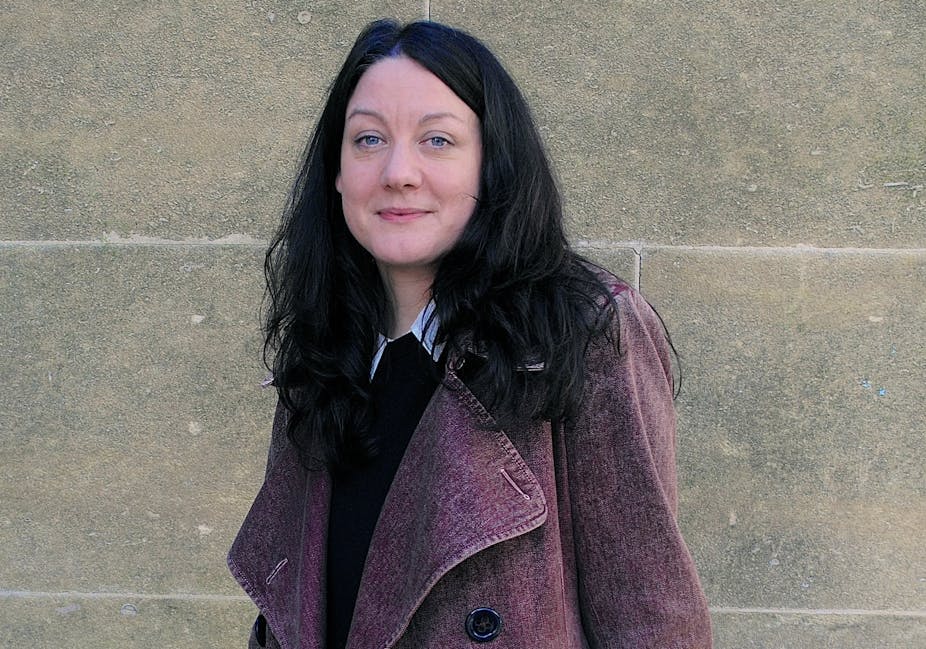Whatever your opinion of book prizes, they remain a useful tool for understanding what is popular in the literary world. The Costa Book of the Year, awarded this year to Helen Macdonald for her book H is for Hawk, provides one such example.
H is for Hawk is grief-tinged, part memoir and part nature book, Macdonald’s account of training a goshawk as a way of dealing with her father’s death.
Another of the category winning titles, Emma Healey’s “dementia detective story” Elizabeth is Missing also concerns illness. And last year’s Costa award went to Nathan Filer’s The Shock of the Fall, which explores mental illness.
So there seems to be a growing trend towards fictional and factual writing about the experience and effects of illness.
A cursory glance at contemporary culture confirms that this is not confined to books. Films, TV shows, and other media all frequently use medicine in their narratives. The soon-to-be released Still Alice features Julianne Moore struggling with Alzheimer’s, while 50/50, starring Seth Rogen and Joseph Gordon Levitt, managed to take a darkly humourous yet moving look at cancer.
In TV, the success of House has made Hugh Laurie an A-list star. Elsewhere, graphic novelists and cartoonists such as Brick and David Small seek to represent the experience of illness in visual art. And there are many first-hand accounts of real-life experience dedicated to the representation of physical and mental illness.
Many universities now offer courses in Medical Humanities, the academic study of medicine, illness, and the arts. Certainly the academic and popular appreciation of medical narratives in relation to life writing and autobiography has increased in recent years, something that academic Leigh Gilmore has attributed to a greater tendency towards introspection around the turn of the millennium.
Critics have suggested, as Ann Jurecic notes that this interest in illness is, like the “misery memoir”, another fashion. Illness is this decade’s hot literary topic, or an academic fad. But I would disagree. When the Wellcome Trust, the foremost funding body in the history of medicine, hosts a series of public exhibitions and their own book prize, I think it’s clear that this is a trend which is well entrenched in the public sphere.
More than a fad
It is tempting to see the growth of cultural interest in medicine as a modern development. It could indicate greater social acceptance of illness, or a willingness to share what once would have been kept largely private. Virginia Woolf once wrote:
Considering how common illness is … it becomes strange indeed that illness has not taken its place with love, battle, and jealousy among the prime themes of literature.
So is the prevalence of medical literature in book prizes evidence that we’re more open and sensitive than past generations? No. This is as fictitious an idea as any hospital drama.
Despite the recent rise in medical-themed writing, the history of medicine and literature goes back much further than this modern interest (or Virginia Woolf). There are medical themes in Western literature dating back to the epics of ancient Greece.
And across time, representations of illness have altered repeatedly to reflect the diseases of the day. In that sense, these texts provide a good barometer of the particular problems of an era. For example, illness and disease were used within fiction to explore anxieties over morality and class in the 19th century, such as in Charles Dickens’ Dombey & Son (1848). In the Cold War, illness allowed writers to fictionalise fears of nuclear conflict, such as in the post-apocalyptic society of Richard Matheson’s I Am Legend (1954). More recently, writers have used illness to consider terrorism, as in Margaret Atwood’s trilogy of novels beginning with Oryx & Crake (2003).
Many specifically, modern reasons have shaped fictional and factual medical narratives over the past 25 years. In our own time, concerns over the UK’s ageing population, the NHS in crisis, or the widespread diagnosis of certain conditions (particularly mental health conditions) might all be increasing interest in medical fiction and illness experiences.
I also have a hunch that reflecting on our own mortality through the illness narrative is a response to the superficiality of the modern world. In a life lived through smartphones and in the virtual spaces of social media, the illness narrative might be a way of tapping into raw emotion once more. If modern life feels dispersed and inauthentic, illness is tangible.
Literature academic Miriam Bailin suggests that in the Victorian period, illness helped create bonds between people in a period of great social tension due to political upheaval. Applying this to our own time, perhaps medical literature and illness narratives are performing a similar process – illness possesses a strong power in emphasising a shared humanity that cuts across the divides of a multicultural and multi-faith society.
Whatever the reason, it’s clear that the fever for the medical narrative is not about to break any time soon.

